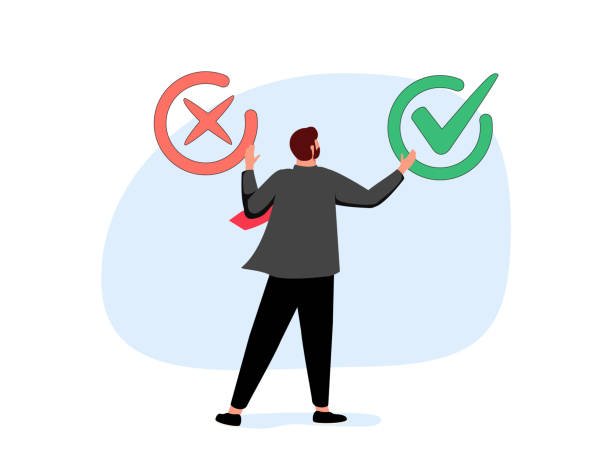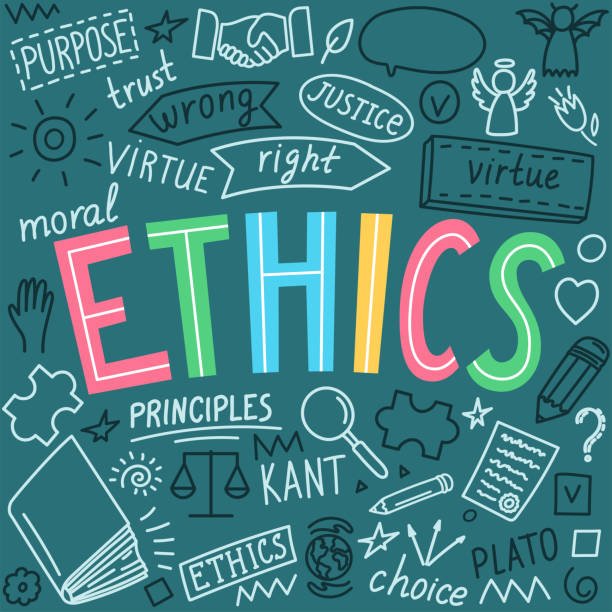Codes of Conduct and Codes of Ethics : Notes, Common Exam Questions and Answers Guide, Online Quizzes and Activities for Business Studies Grade 12 Revision Studies, from Ethics and Professionalism section. This content is under Term 1 as per the CAPS Curriculum.
On this page, grade 12 students learn and study for revision using REAL EXAM questions based on Codes of Conduct and Codes of Ethics topic, using activities and engaging quizzes. Every South African grade 12 learner who wants to pass Business Studies subject with a distinction, needs to go through the valuable study resources on this page.
Codes of Conduct and Codes of Ethics Business Studies Grade 12
Codes of conduct and codes of ethics are two important documents that guide ethical behavior in business. In South Africa, these documents play an important role in promoting transparency, accountability, and ethical conduct in the workplace.
- A code of conduct outlines:
- the specific behaviors that are expected of employees, contractors, and other stakeholders in the business.
- This can include guidelines for interactions with customers, suppliers, and other parties, as well as rules regarding the use of company resources and the protection of confidential information.
- A code of conduct is typically enforced by the company’s management team or human resources department.
- A code of ethics, on the other hand, provides:
- a broader framework for ethical behavior in the business.
- It outlines the company’s core values, principles, and beliefs, and provides guidance for decision-making in complex ethical situations.
- A code of ethics is typically enforced by the company’s board of directors or governing body.
In South Africa, codes of conduct and codes of ethics are governed by the Companies Act of 2008. This act requires companies to have a code of conduct that is aligned with the values and principles outlined in the King Code of Governance Principles for South Africa (also known as King IV). King IV provides guidelines for ethical conduct, corporate governance, and sustainability in South African businesses.
List of facts:
- South African companies are required by law to have a code of conduct that is aligned with King IV principles.
- The Companies Act of 2008 also requires companies to have a social and ethics committee, which is responsible for monitoring compliance with the company’s code of conduct and code of ethics.
- The South African Institute of Chartered Accountants (SAICA) provides guidance for ethical behavior in the accounting profession through its Code of Professional Conduct.
- The Institute of Directors in Southern Africa (IoDSA) provides guidance for ethical behavior in corporate governance through its King IV Code of Governance Principles.
- Codes of conduct and codes of ethics are important tools for promoting transparency, accountability, and ethical behavior in the workplace.
Codes of conduct and codes of ethics are essential documents in promoting ethical behavior in business. In South Africa, these documents are governed by the Companies Act of 2008 and are aligned with King IV principles. They are important tools for promoting transparency, accountability, and ethical behavior in the workplace, and help to ensure that companies operate in a sustainable and socially responsible manner.
Who is affected by codes of conduct and codes of ethics in business?
Codes of conduct and codes of ethics in business affect a wide range of stakeholders, including:
- Employees: Employees are expected to adhere to the company’s code of conduct and code of ethics in order to maintain a positive and ethical work environment. This can include guidelines for interactions with colleagues, customers, and suppliers, as well as rules regarding the use of company resources and the protection of confidential information.
- Customers: Customers expect businesses to operate in an ethical and responsible manner. A company’s code of ethics can help to reassure customers that their interests are being protected and that the company is committed to providing high-quality products and services.
- Shareholders: Shareholders have a vested interest in the long-term success of the company. A code of ethics can help to ensure that the company operates in a sustainable and socially responsible manner, which can help to protect the interests of shareholders.
- Suppliers: Suppliers are an important part of the company’s supply chain. A code of conduct can help to ensure that suppliers are treated fairly and that ethical standards are maintained throughout the supply chain.
- Regulators: Regulators play a key role in ensuring that businesses operate in compliance with applicable laws and regulations. A code of ethics can help to demonstrate a company’s commitment to ethical behavior and can help to build trust with regulators.
- Society: Businesses have a responsibility to operate in a manner that is socially responsible and sustainable. A code of ethics can help to ensure that businesses are held accountable for their actions and are contributing positively to society.
Video: Code of Conduct and Ethics for Employees
Codes of conduct and codes of ethics in business affect a wide range of stakeholders, including employees, customers, shareholders, suppliers, regulators, and society as a whole. These documents are important tools for promoting transparency, accountability, and ethical behavior in the workplace, and help to ensure that businesses operate in a sustainable and socially responsible manner.






